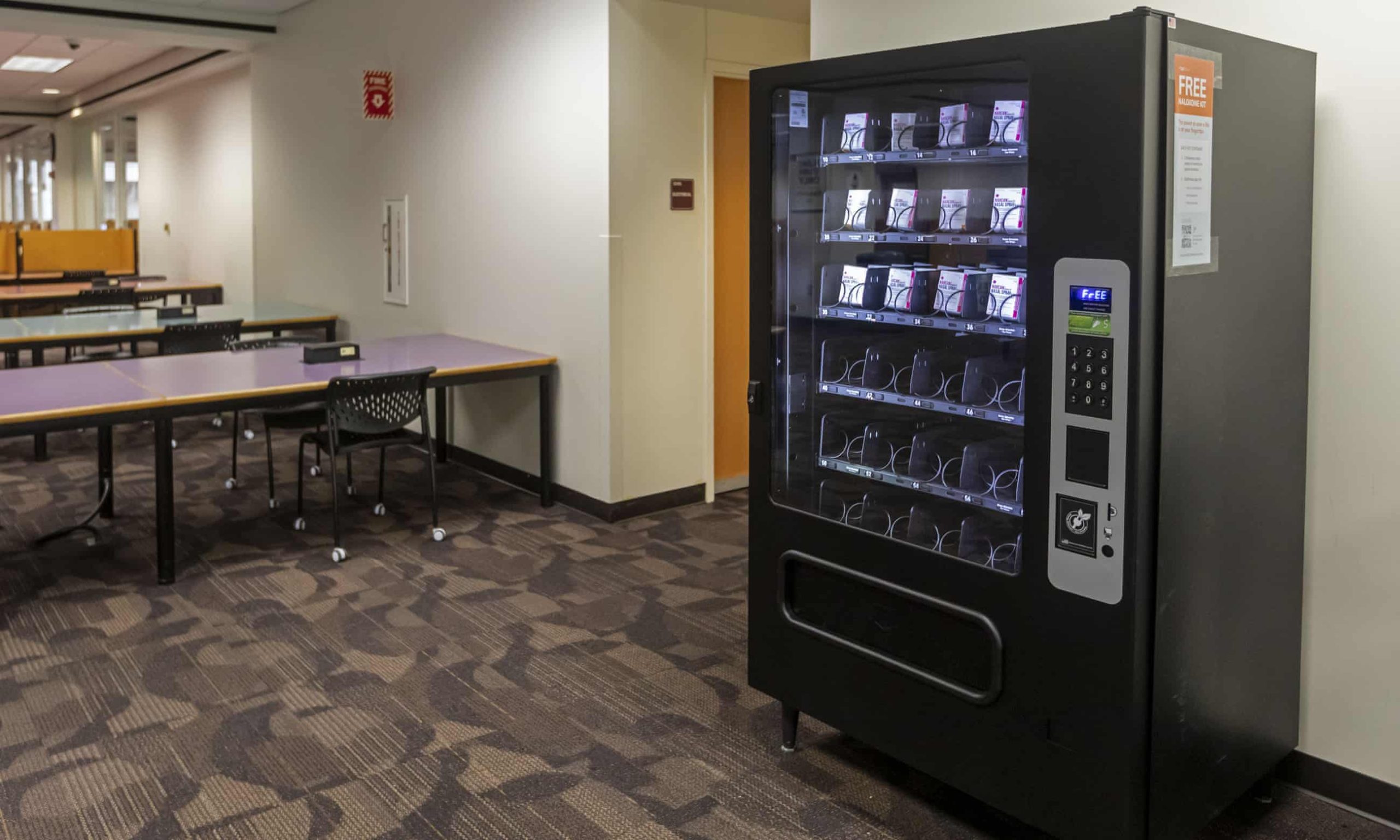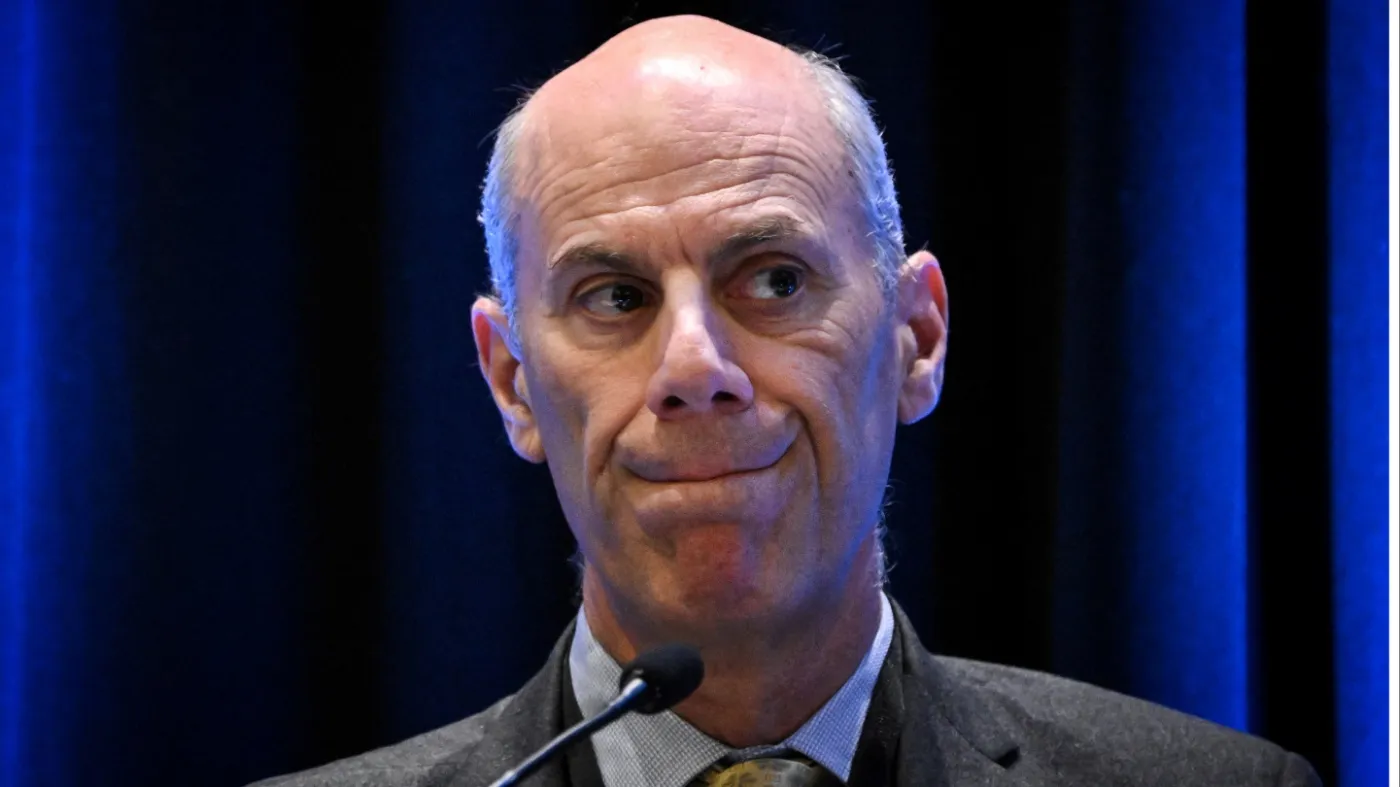The police chief of the small Kentucky city of Vine Grove knew from heart-rending experience why he needed a vending machine outside his office.
Kenneth Mattingly’s daughter was twice brought to the brink of death by heroin and twice pulled back by paramedics carrying an antidote, naloxone. Then Mattingly responded to an opioid overdose call early last year at which a woman saved a friend’s life because she was carrying a naloxone spray, often known by its brand name Narcan.
“She was a recovering addict herself and she happened to have Narcan she had gotten from one of her treatment facilities. So she hit him with a dose and brought him around. We hit him with a couple more and basically saved his life,” he said.
“That got me to thinking. He would probably have died if she hadn’t had Narcan. I gave my police officers Narcan to carry on duty but it still takes them time to get there and people die in the meantime.”
Police officers and paramedics regard naloxone as something of a miracle drug. A spray of the antidote can reverse an overdose so fast that within a few minutes a person is standing up and walking away, sometimes unaware just how close they came to dying. But it takes nearly 10 minutes on average for a paramedic or the police to reach someone overdosing. In rural areas, it can be a lot longer.
There is, on average, a death a week from opioids in Vine Grove and surrounding Hardin county – not atypical for a region hard hit by the worst drug epidemic in US history. Mattingly thought it would be a good idea if everyone who knew someone addicted to the drugs had naloxone on hand. But how to get what was technically a prescription drug into the hands of the general public?
Watching the news one evening, the police chief was struck by a report about a hospital in Indiana installing a vending machine to dispense naloxone for free and with no questions asked.
Within months, Mattingly had won the support of the city’s mayor and put in place Kentucky’s first naloxone vending machine, repurposed with a disabled payment function from the same kind that dispense chocolate bars and cans of soft drinks, in an alcove outside Vine Grove police department.
The location was apparently not a deterrent as the machine was emptied within 24 hours, a reflection of the extent of the opioid epidemic in a state where overdose deaths jumped 49% in 2020. Kentucky has the third highest drug overdose death rate in the country.
Mattingly, who left the police department last month to work as a detective in a neighbouring town, sometimes spoke to those collecting naloxone as the machine was repeatedly restocked.
“It ran the gamut of people. I had a 75-year-old grandfather whose son is an addict and he was coming over to visit that weekend. He said he wanted to have Narcan at home in case his grandson overdoses. There were some construction workers who encountered people who overdosed, so they were coming to get it,” he said.
“I told people, take two or three boxes. Put it in your home, keep it in your car, keep it in your bathroom, keep it wherever you think you might need it.”
Naloxone vending machines have proliferated across the country, from rural counties to college campuses and jails, as the US continues to struggle to contain the rising toll of an epidemic the Centers for Disease Control and Prevention estimates has claimed more than 700,000 lives since the crisis took off in 1999, driven by drug manufacturers pushing prescription painkillers.
Nearly 110,000 people died of drug overdoses in the US last year, the vast majority from opioids. But now the rising death toll is mostly the result of fentanyl, a potent opioid up to 100 times stronger than morphine. The drug is frequently produced in China and smuggled into the US via Mexico to be laced into heroin, cocaine and methamphetamine.
Earlier this month, New York, which sees a drug overdose every four hours, announced that it will join cities from Philadelphia to San Diego in installing vending machines stocked with naloxone sprays. Municipalities and organizations across the country are placing them in fire stations, libraries, even churches. No payment is required although some machines offer the user the opportunity to input basic demographic data and to seek counseling.
Wayne State University in Michigan has already installed 15 naloxone vending machines in public squares, local jails and its own campus in Detroit. It has funding to place another 20 this year.
Matt Costello, the programme manager for the Center for Behavioral Health and Justice at Wayne State, said the machines are designed to make it quick and easy to obtain naloxone, no questions asked. They have already distributed more than 19,000 antidote kits.
Vending machines with lifesaving drug grow as opioid crisis rages in US




